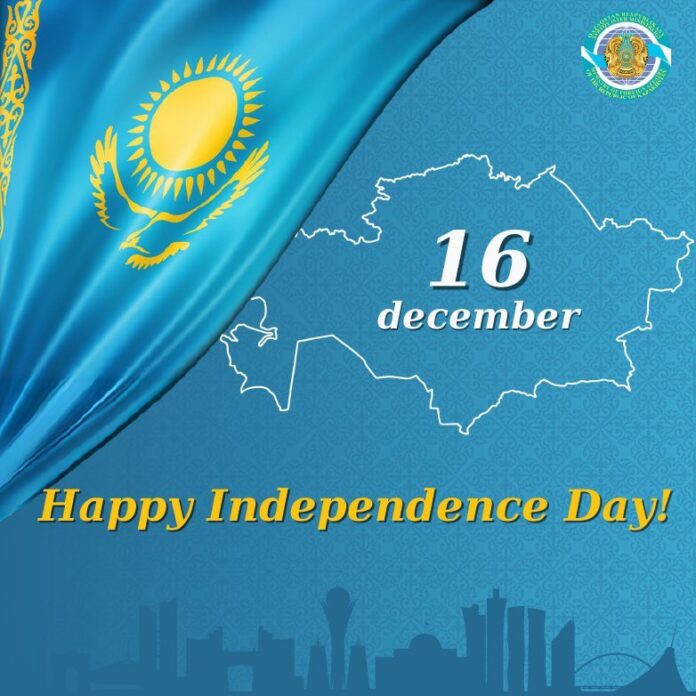Edited by Anna Popper
December 16 marks a pivotal day in the modern history of Kazakhstan, commemorating the country’s emergence as an independent state. The legislation on independence and state sovereignty of Kazakhstan, which granted legal recognition as an independent democratic state, was officially adopted on 16 December 1991 by the Supreme Council. This significant legal framework ensured Kazakhstan the authority to autonomously determine and pursue both domestic and foreign policies. The Declaration of Independence served as a catalyst for a new era in Kazakhstan, presenting the opportunity to build a self-governing state with a functioning parliament, to implement a judicial system, to strengthen the county’s economic development and to foster social and cultural progress for the population.
An Inspiring Concert: “Melodies of the Endless Steppe – Voice of Kazakhstan”
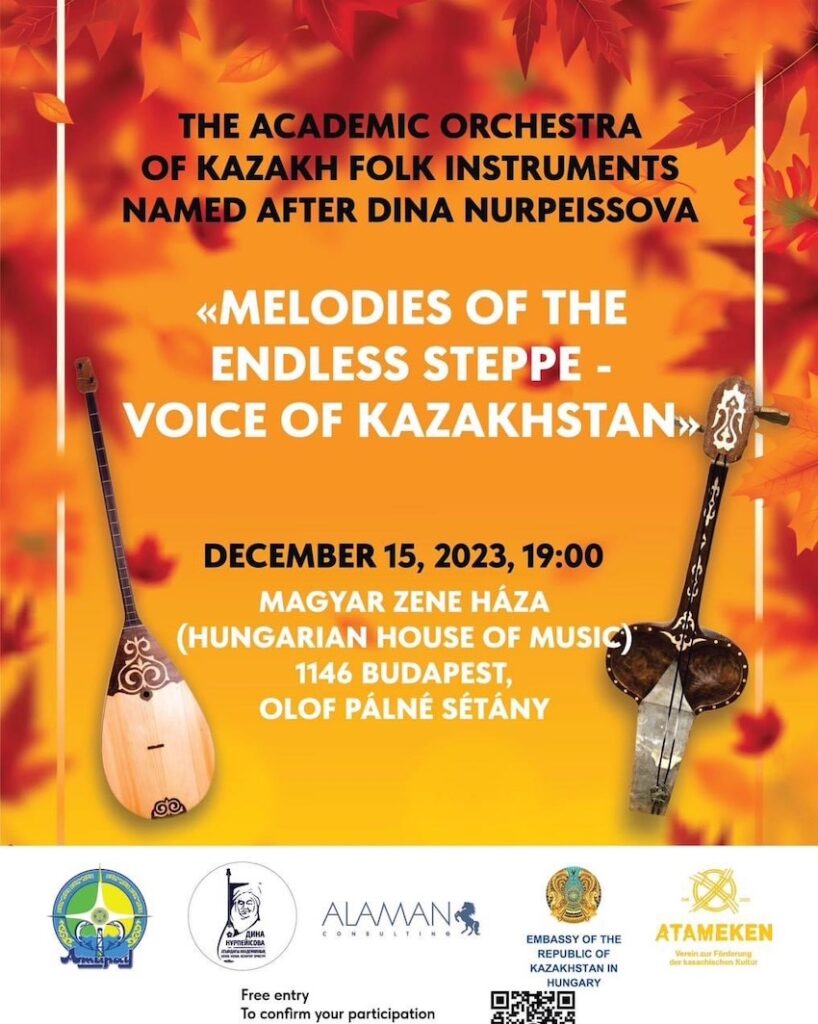
On the occasion of the 32nd Independence Day, the Embassy of the Republic of Kazakhstan in Hungary, with the support of the Akimat of Atyrau Region, organised a grand concert by the renowned Dina Nurpeisova Academic Orchestra of Kazakh Folk Instruments, representing the musical heritage of the Great Steppe, born from the rich cultures of nomadic peoples.
The Hungarian House of Music was filled with an enthusiastic audience, including Hungarian officials, members of the diplomatic corps, nationals of Kazakhstan living in Hungary, invited by the Ambassador of the Republic of Kazakhstan to Hungary, H.E. Mr. Zhanibek Abdrashov and Mrs. Anel Akbergenova.


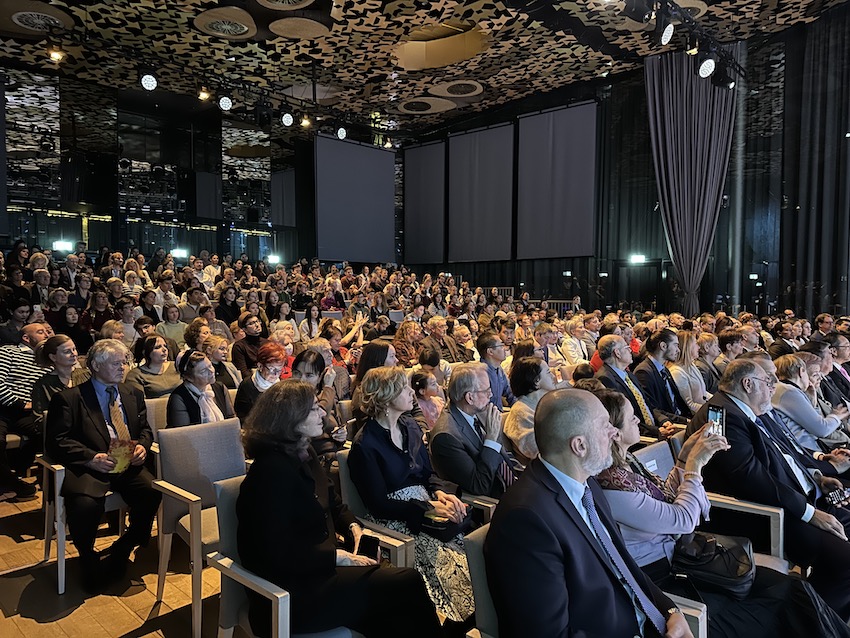
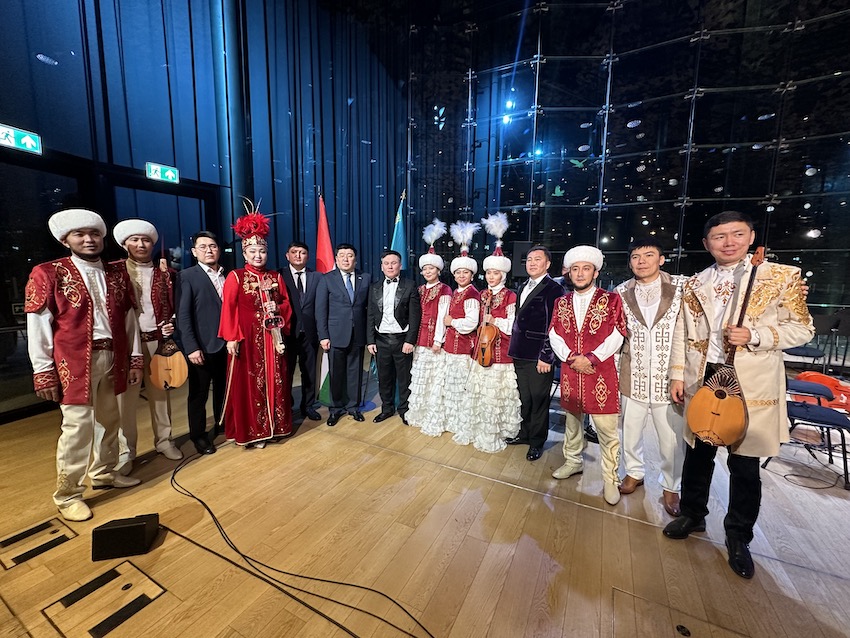
Prior to the concert, the ambiance was already full of excitement and a shared sense of celebration. In his speech, Ambassador Abdrashov conveyed his warm welcome to the audience and spoke about the historic anniversary. He also introduced the famous ensemble performing at the concert.


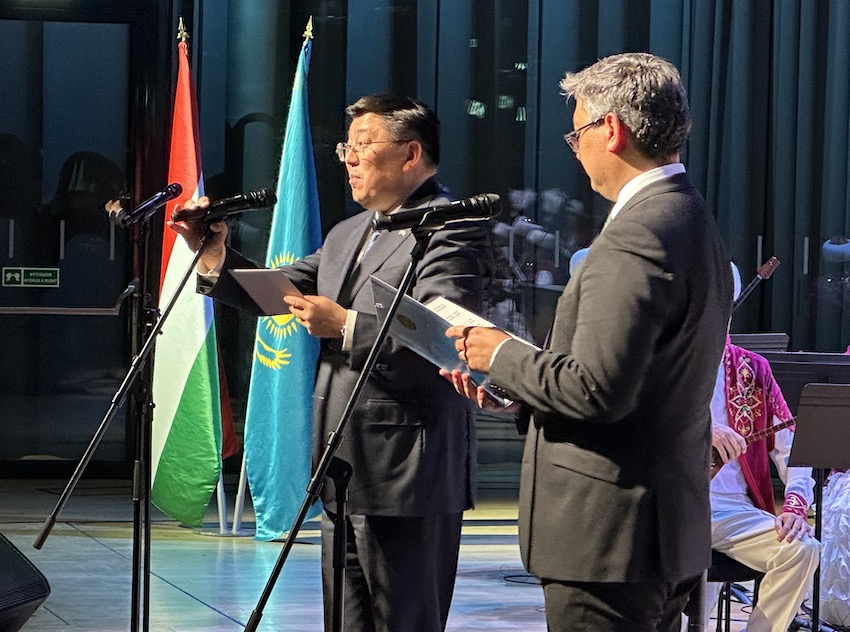
On the stage of the illustrious Hungarian House of Music building, a harmonious blend of compositions from Kazakh and European classics resonated throughout the venue, featuring works by Dina Nurpeisova, Kurmangazy, Zhaiau Musa, Akhmet Zhubanov, Nurgisa Tlendiev, and Yevgeny Brusilovsky, alongside Johann Strauss. The concert program showcased the melodic charm of Kazakh folk instruments, providing the attendees with a captivating and culturally enriching experience. The audience was amazed by the creative musical repertoire, namely “Balbyrauyn”, “Korkyt” and “Adai” and admired the artists’ emotionality, energy, voices and colourful costumes. A delightful surprise for the guests was to listen the “Hungarian Dances No. 5” from Johannes Brahms, performed on folk instruments by the talented musicians.



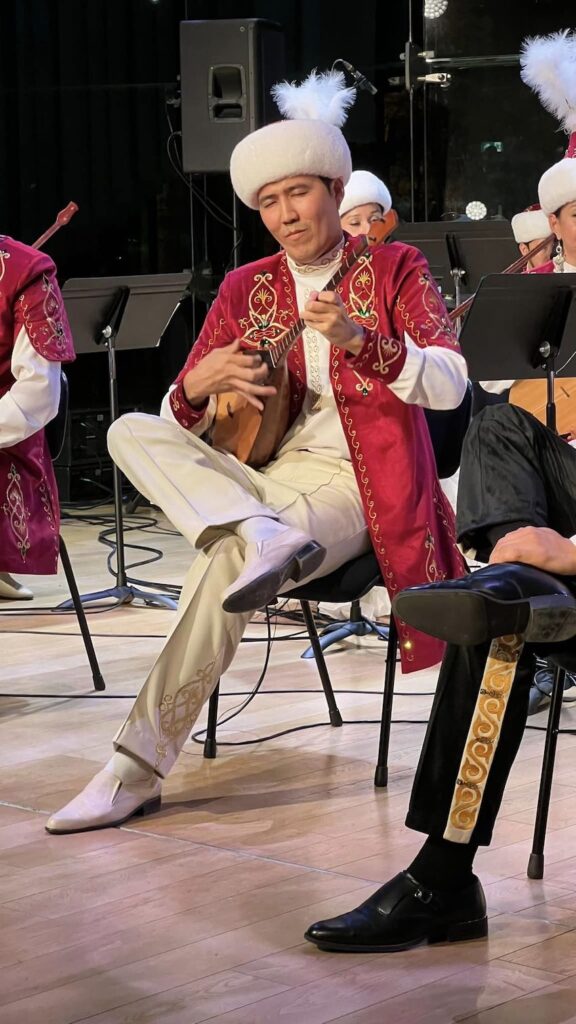
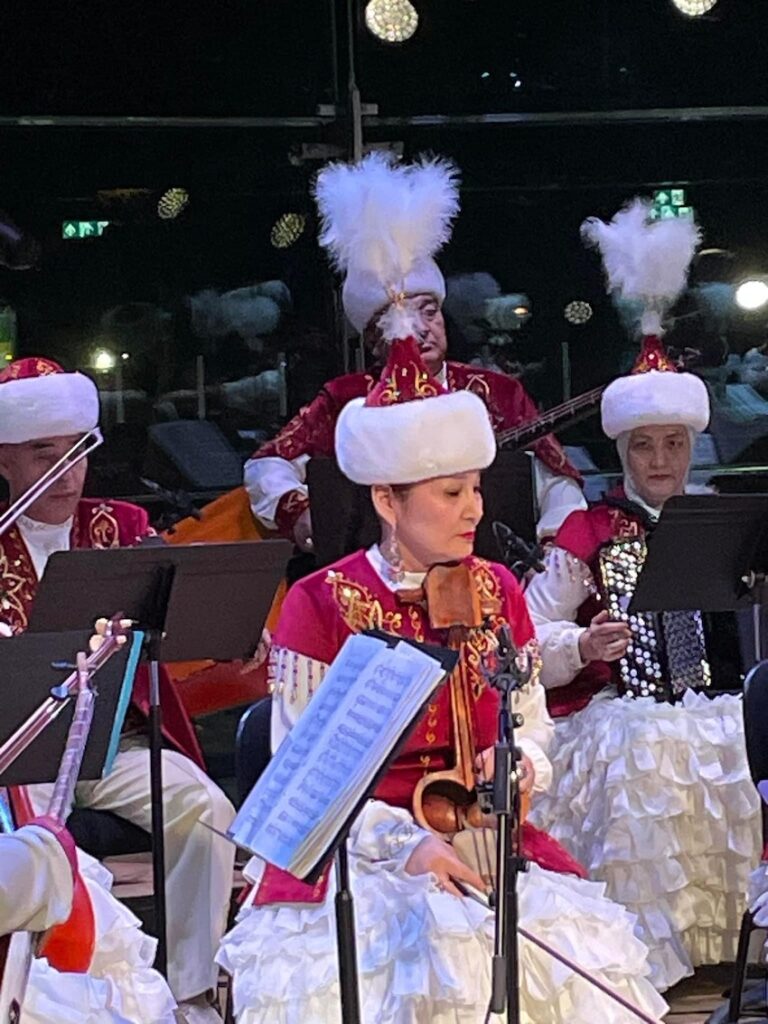
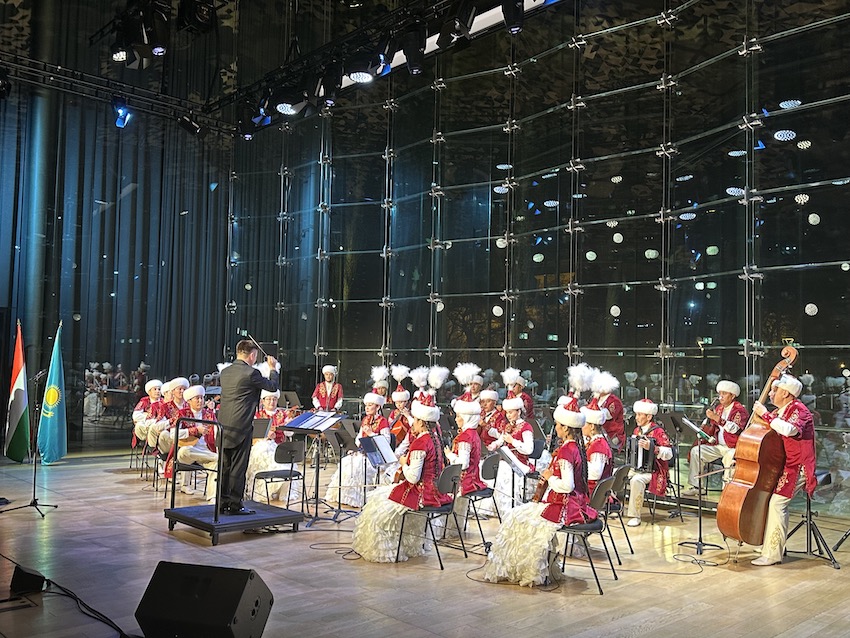

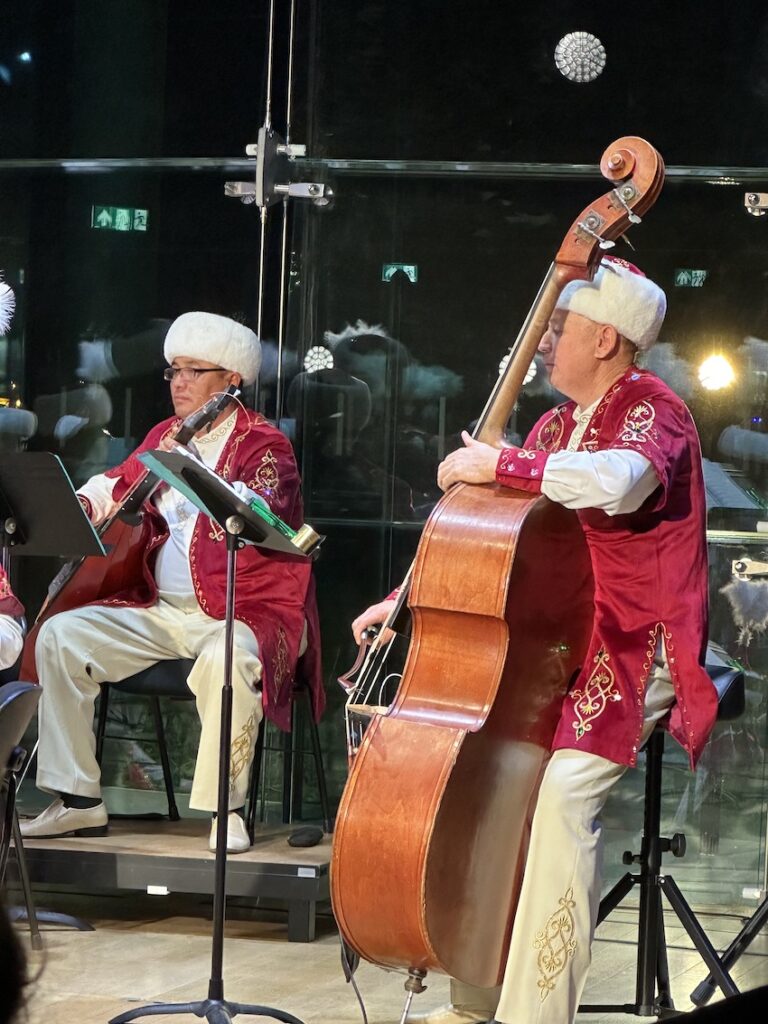
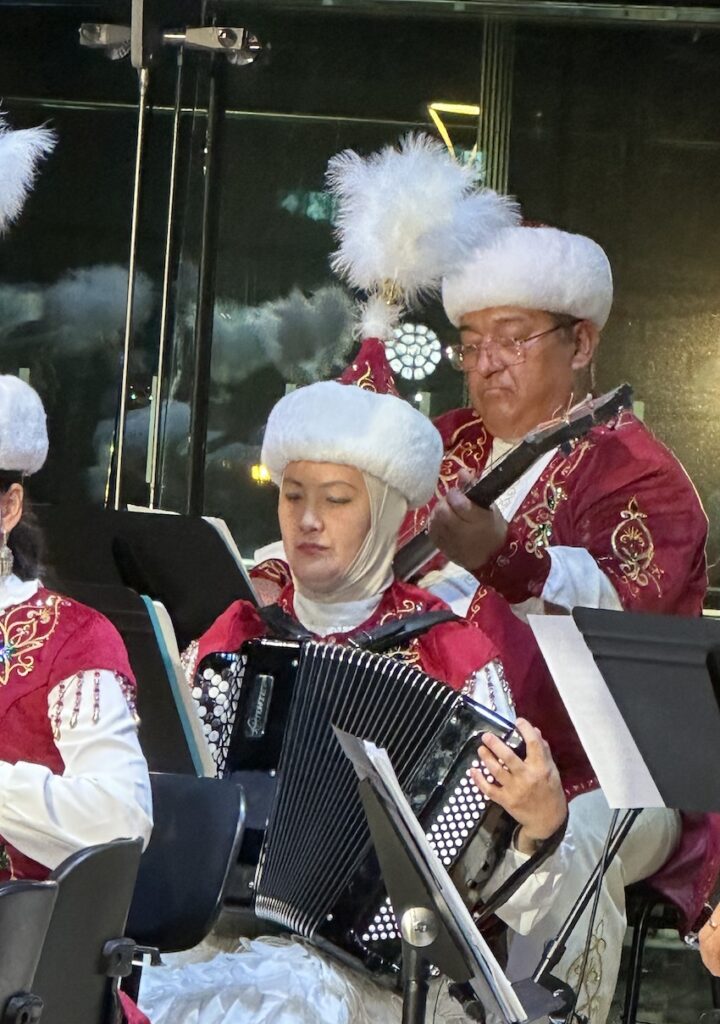
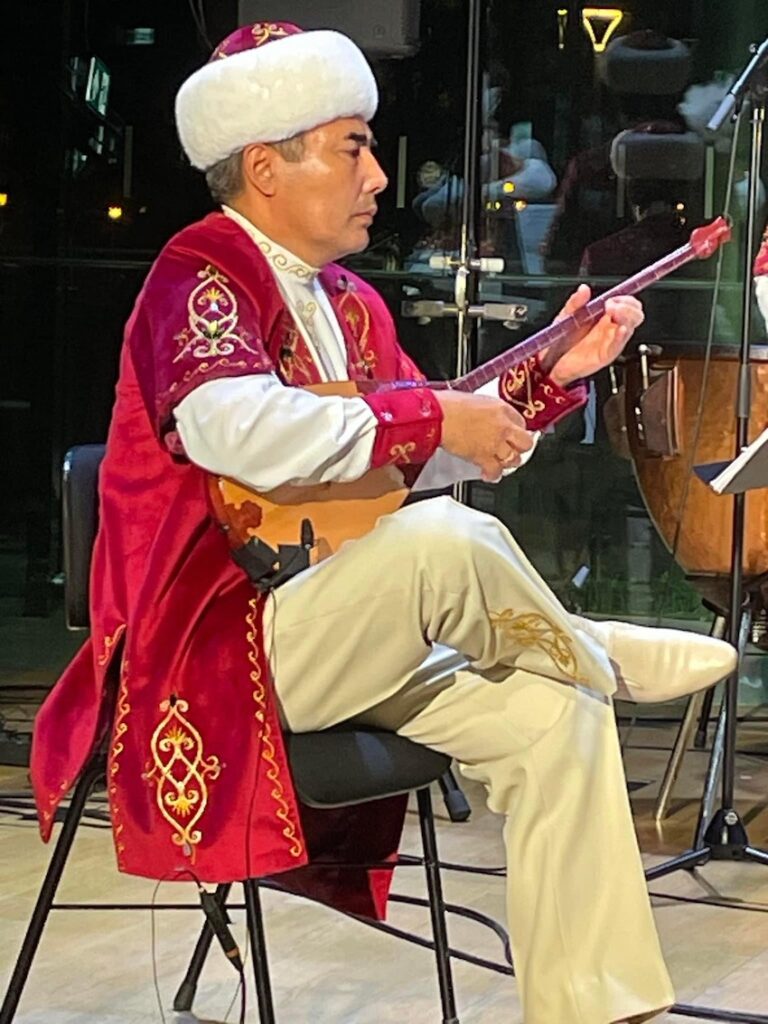
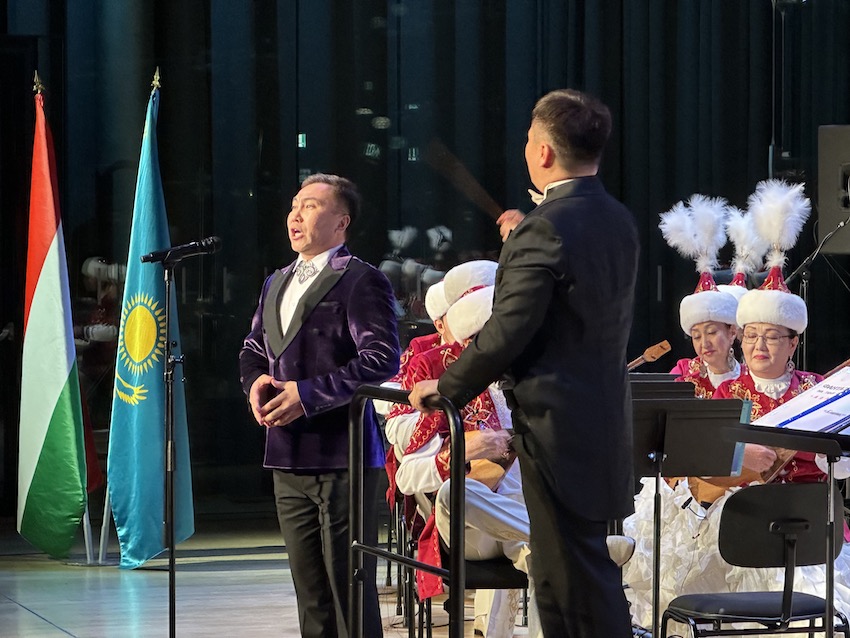
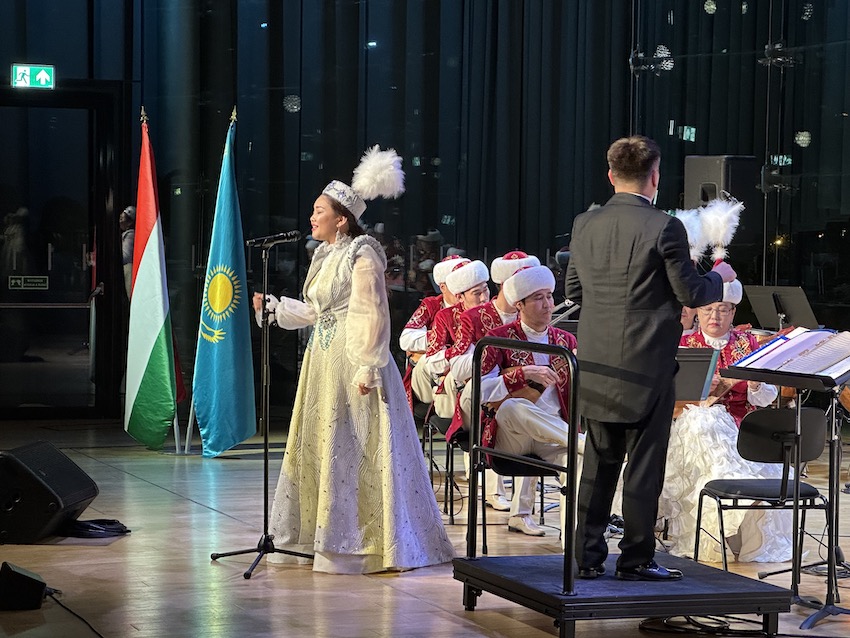
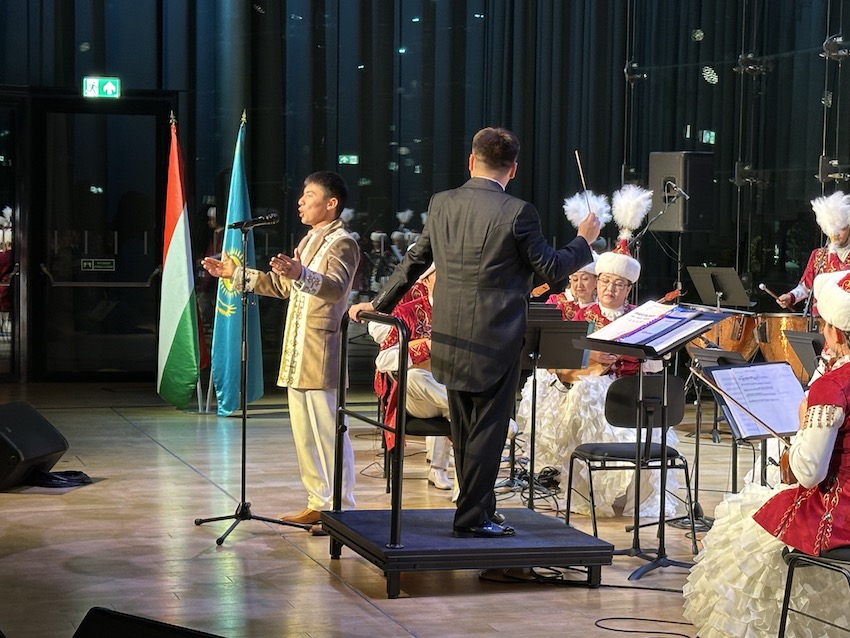
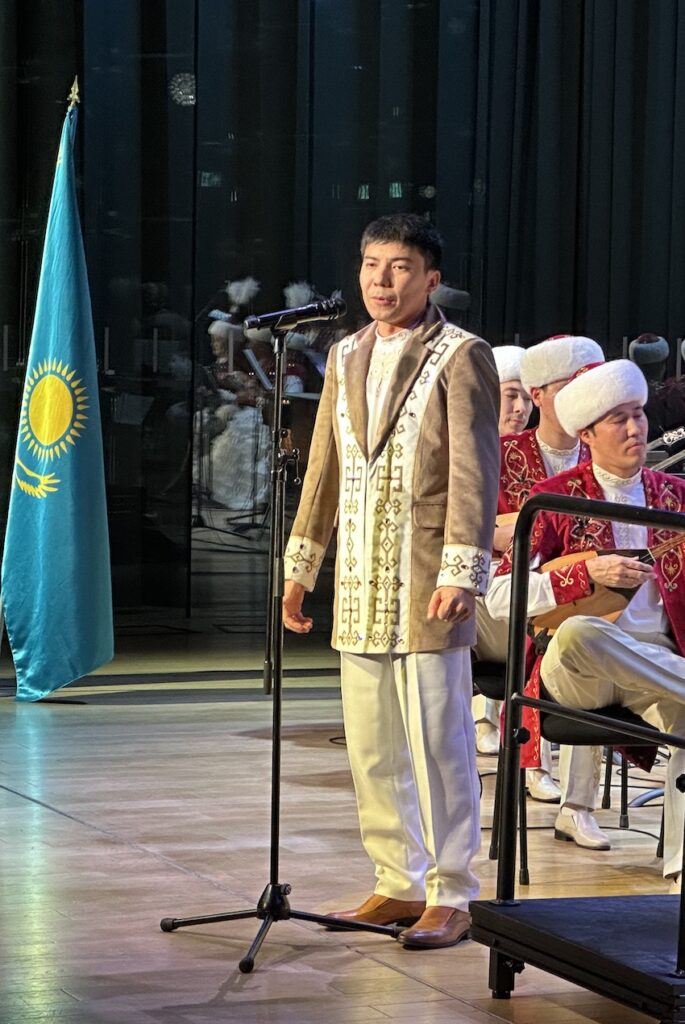
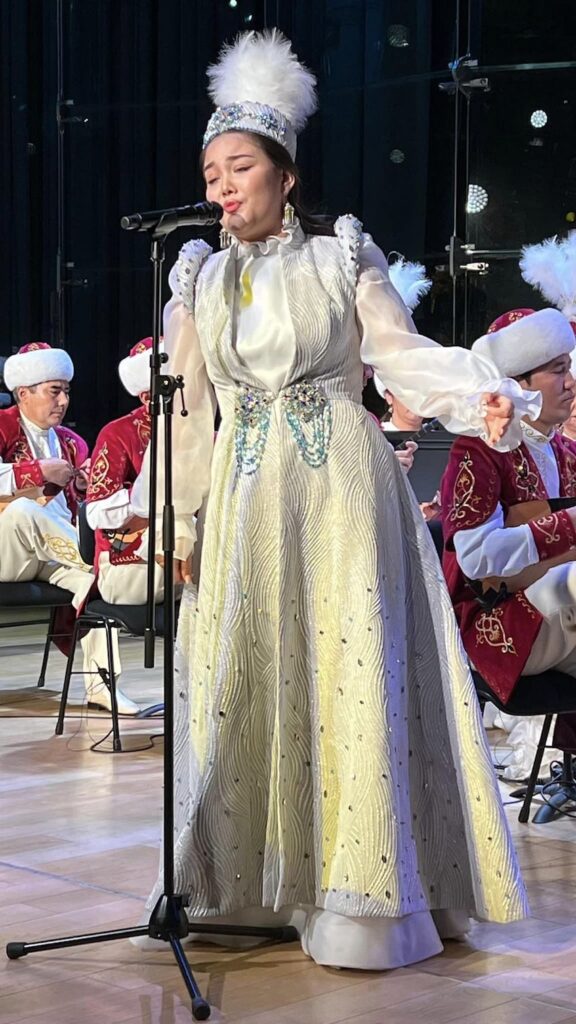
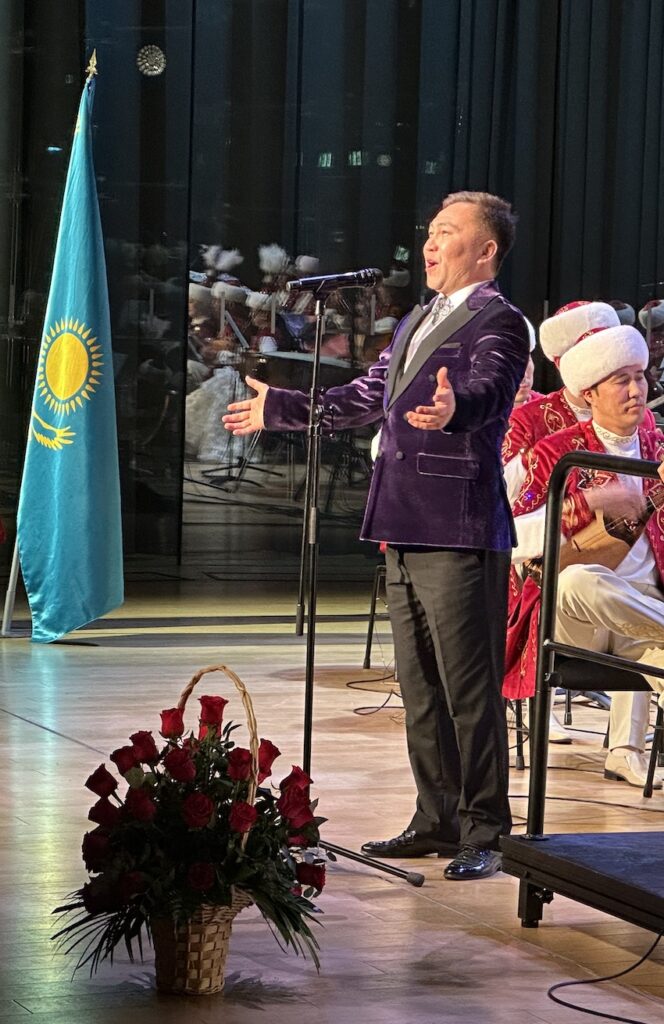
The musical legacy of the Great Steppe is a living testament to resilience, adaptability and creativity of nomadic peoples. The powerful energy of Khoomei (a unique form of throat singing, deeply rooted in the nomadic traditions in Central Asia) and the virtuoso mastery of the dombra (traditional string instrument with a long neck and two strings), demonstration of the musical skills of playing and singing technique of the artists and soloists, fascinated the spirit of the audience, who expressed their appreciation for the performances with a round of applause.
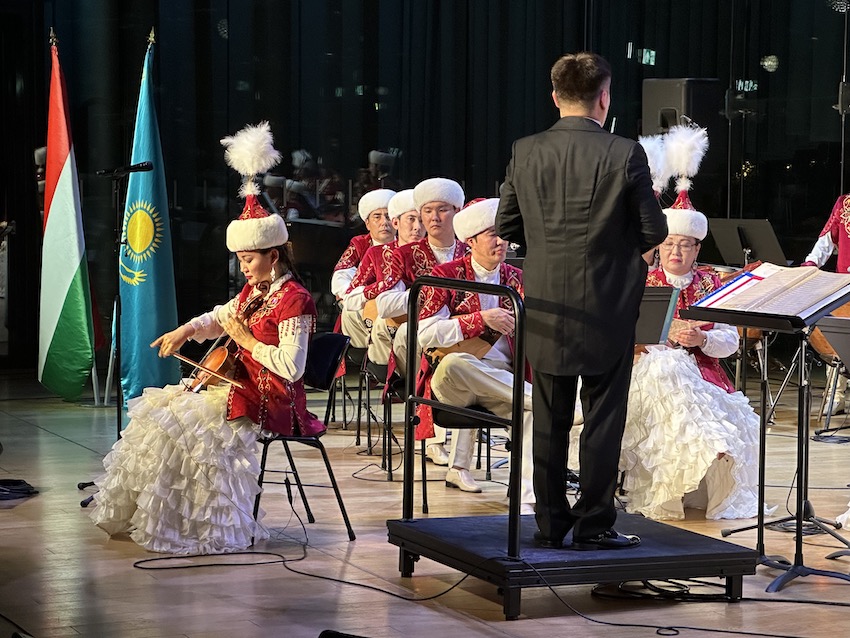
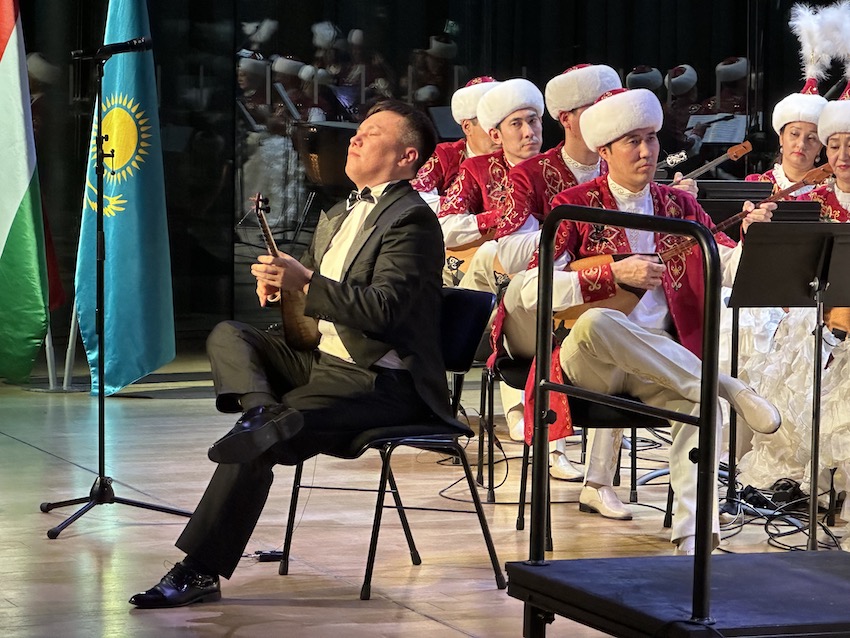
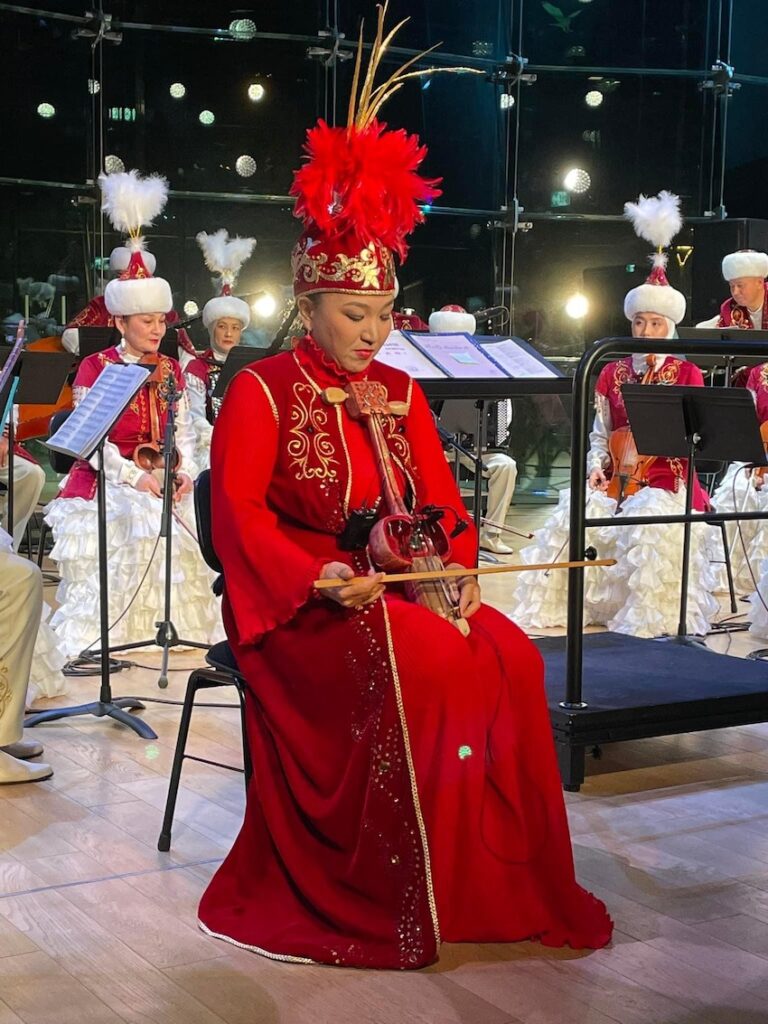
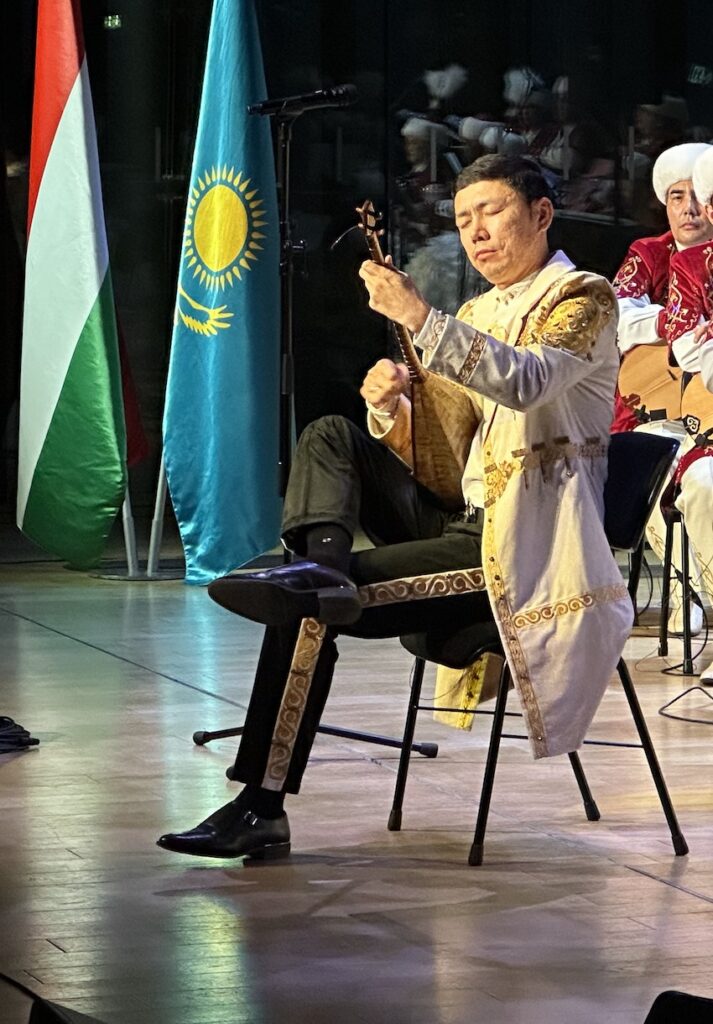
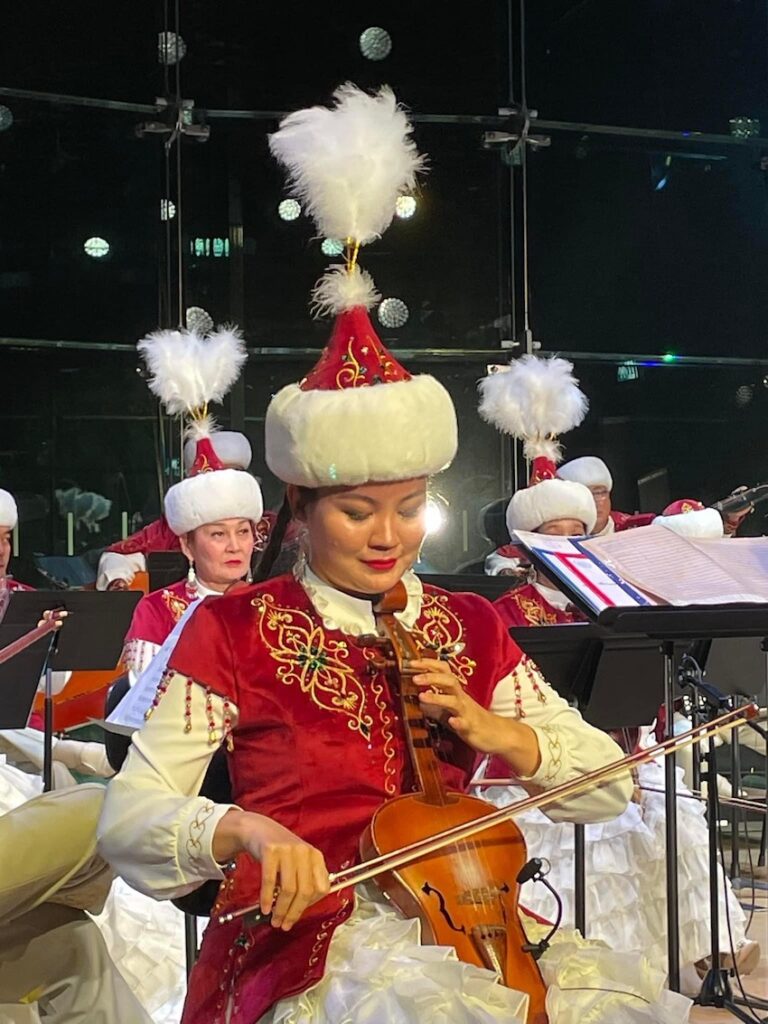
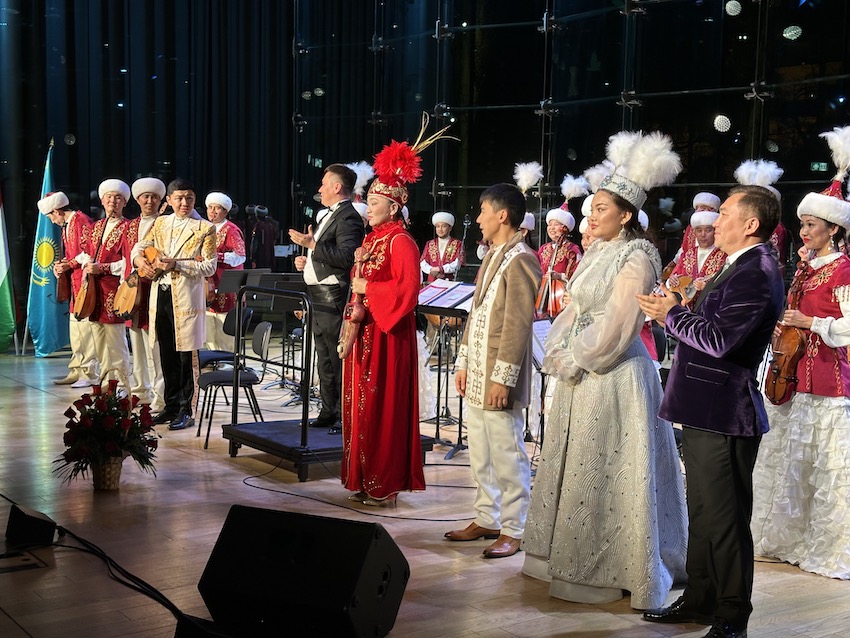
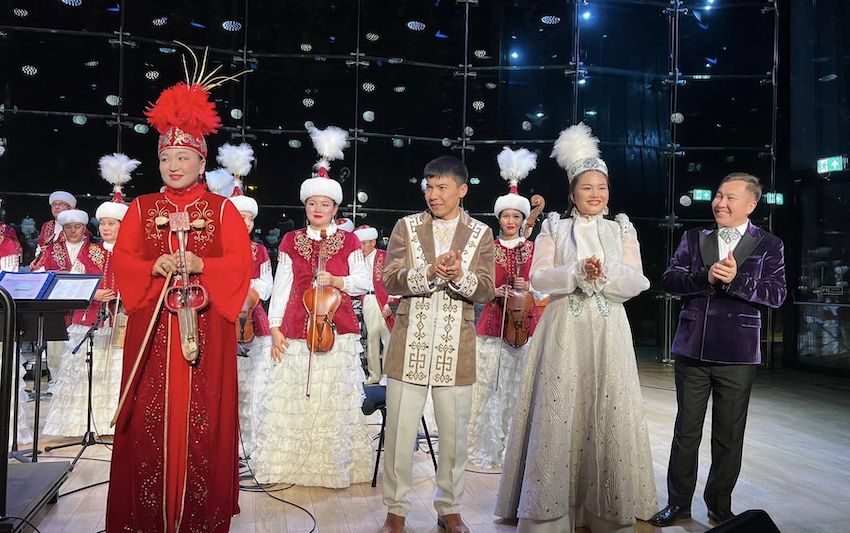
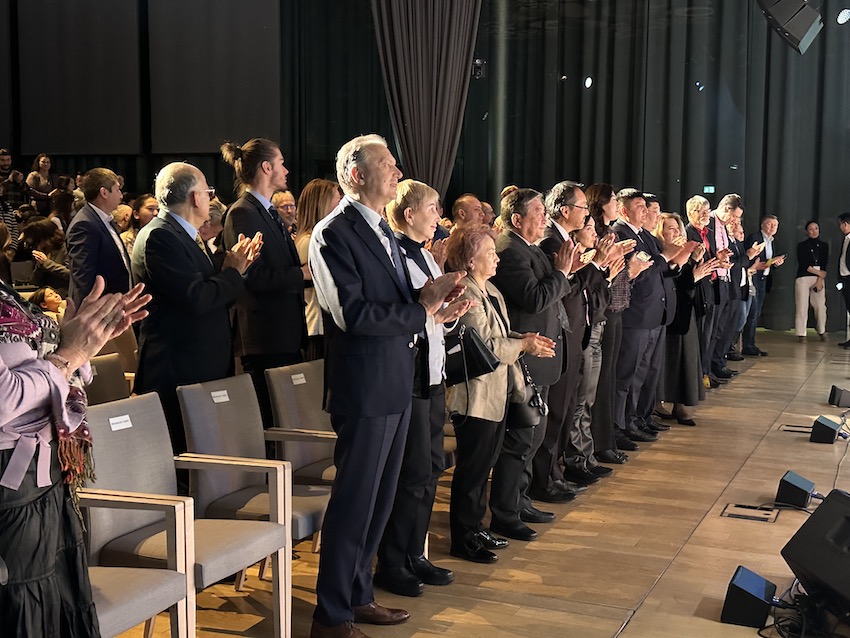
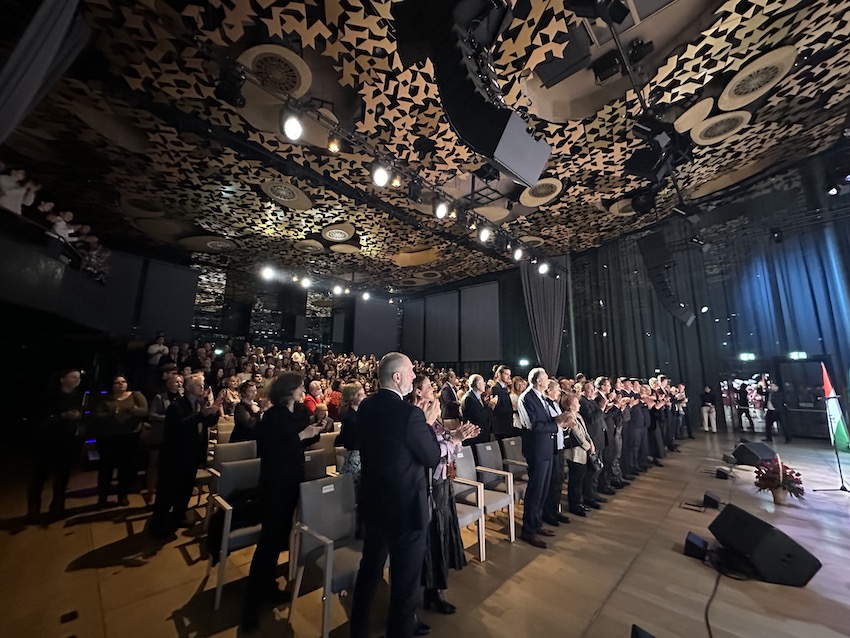

This joyful event celebrated not only the Independence Day of Kazakhstan, but also showcased the richness and originality of the country’s culture, and the commitment to promoting its cultural identity and further strengthening the multifaceted ties with Hungary.



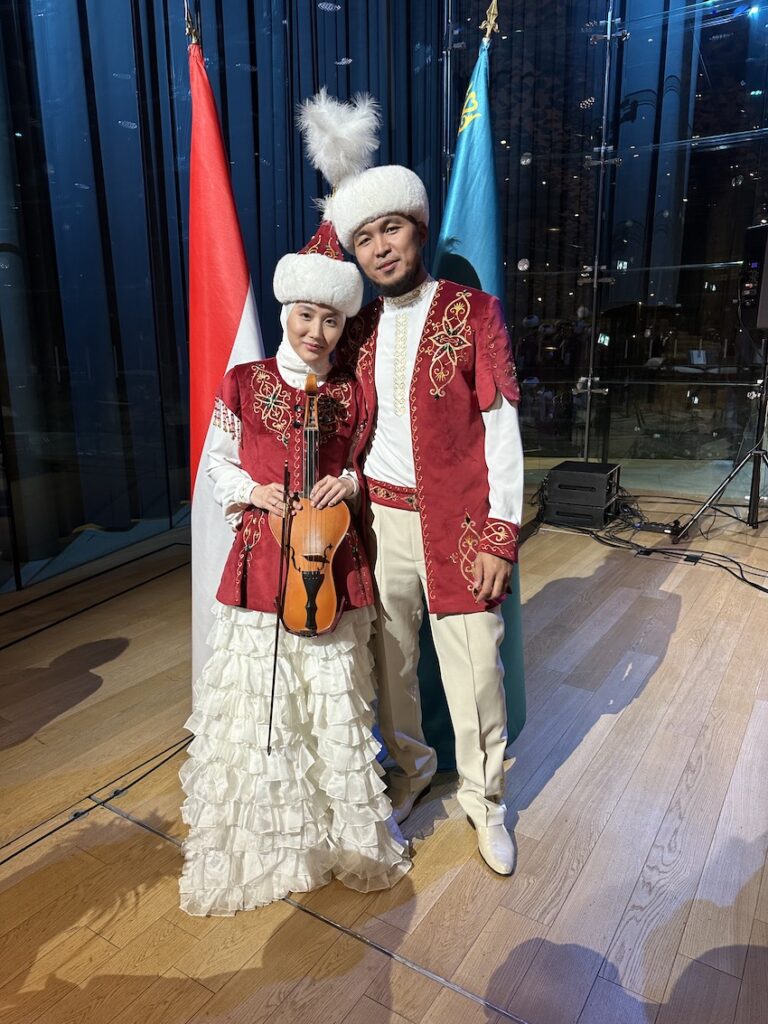
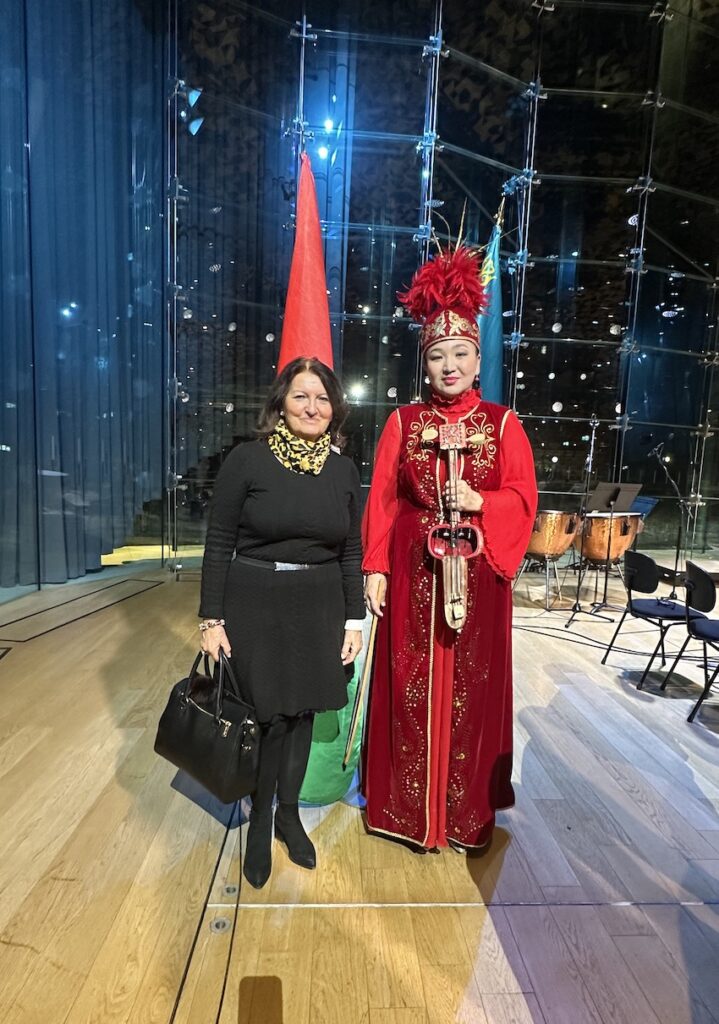
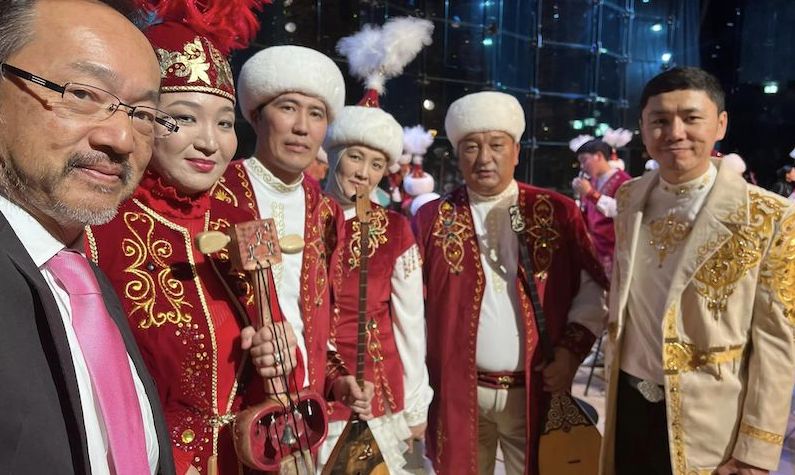

Kazakh Cinema Days 2023
The Embassy of the Republic of Kazakhstan in Hungary hosted the Kazakh Cinema Days at the National Cinema “Urania” in Budapest on 19-20 December 2023 as part of the Independence Day celebrations.

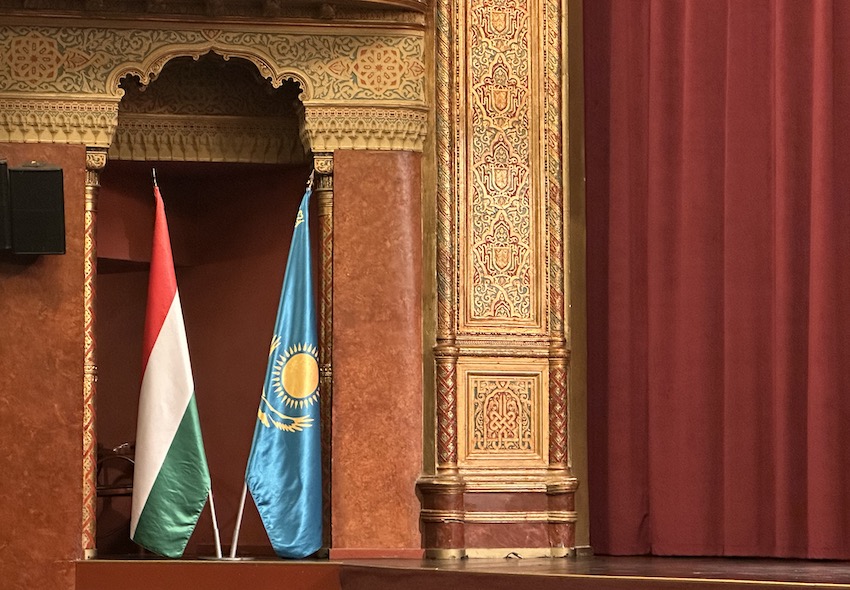
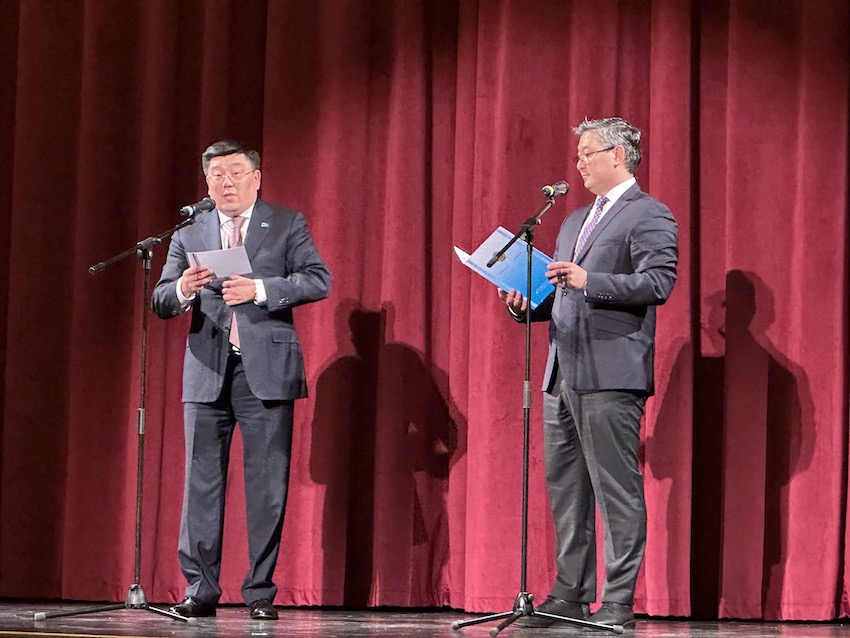

His Excellency Zhanibek Abdrashov, Ambassador of Kazakhstan to Hungary, inaugurated the event. The opening featured the screening of the great historical film “Kazakh Khanate: Golden Throne”, an ambitious storytelling with meticulous attention to historical detail, directed by Rustem Abdrashev, who graced the occasion and expressed gratitude for the warm welcome from the enthusiastic audience. The film is based on the renowned novel “Nomads” by Ilyas Esenberlin.
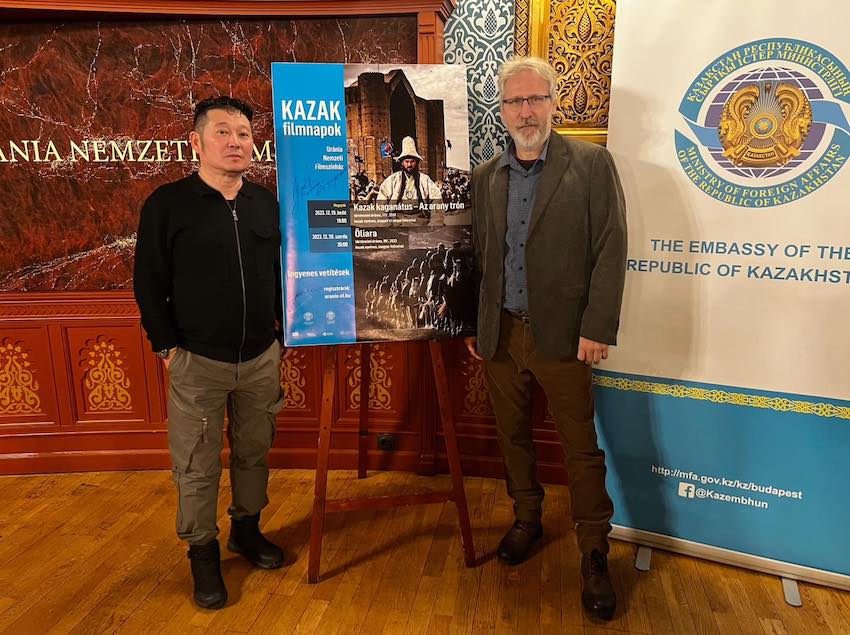
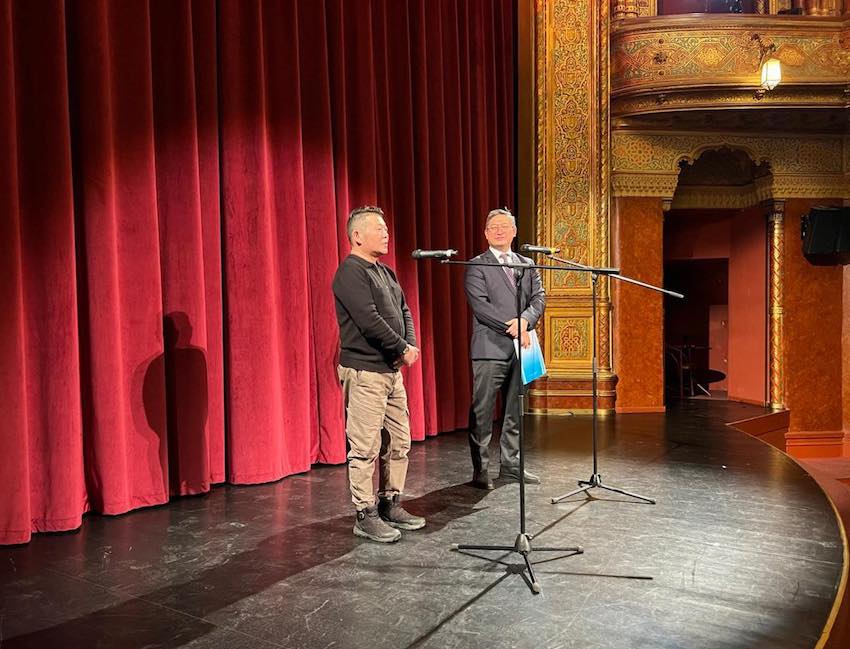

The Kazakh-Hungarian movie “Öliara”, directed by renowned Hungarian director Tamás Tóth, premiered on 20 December, adding another dimension to the cultural ties and exchanges between the two nations.

At the post-screening event, attendees had the opportunity to meet the directors of the films, which was an exciting and memorable moment for both the filmmakers and the audience.
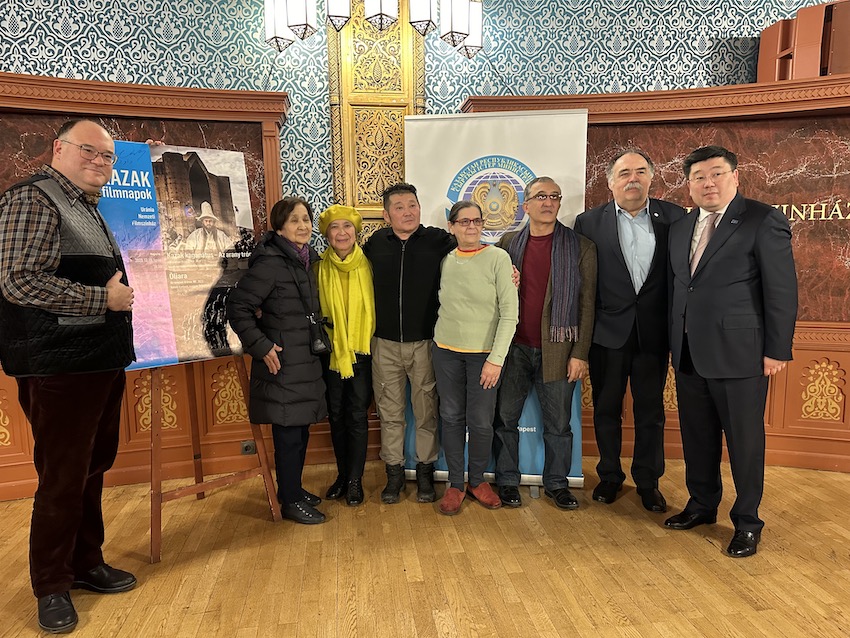
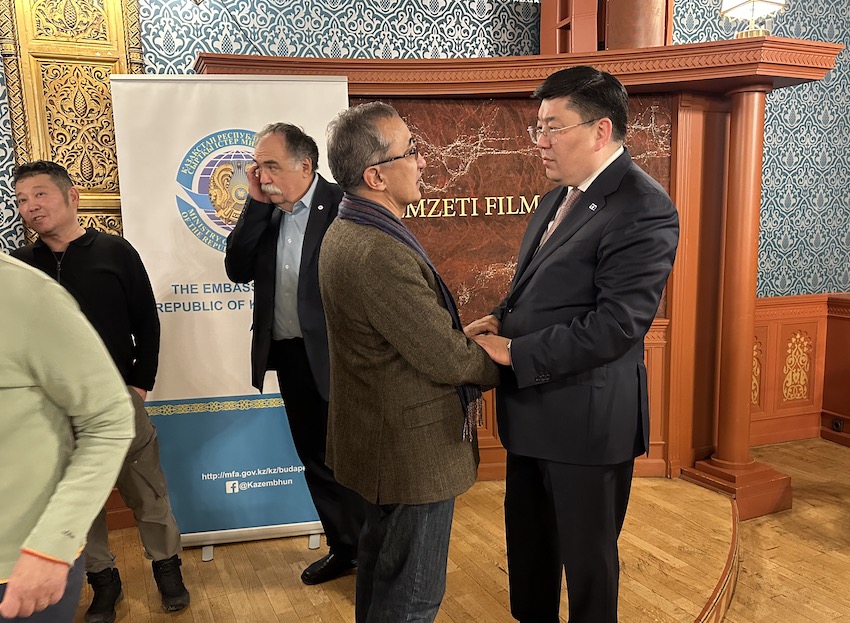
Source: Embassy of Kazakhstan in Budapest, Ministry of Foreign Affairs of Kazakhstan
Photos by the Embassy of Kazakhstan and DPA





